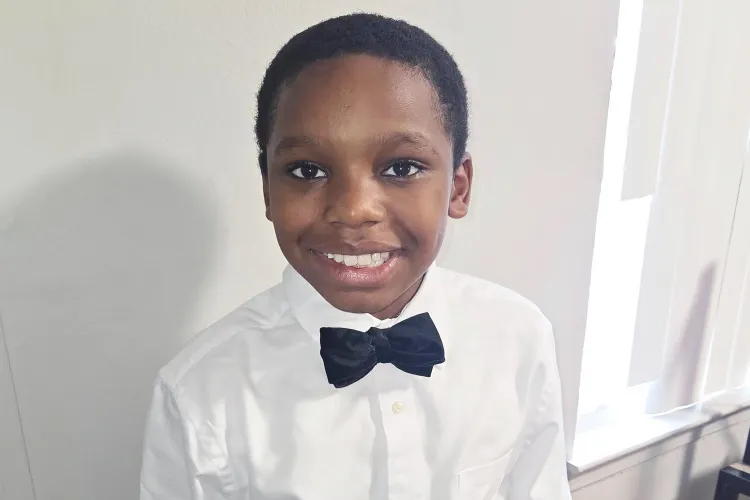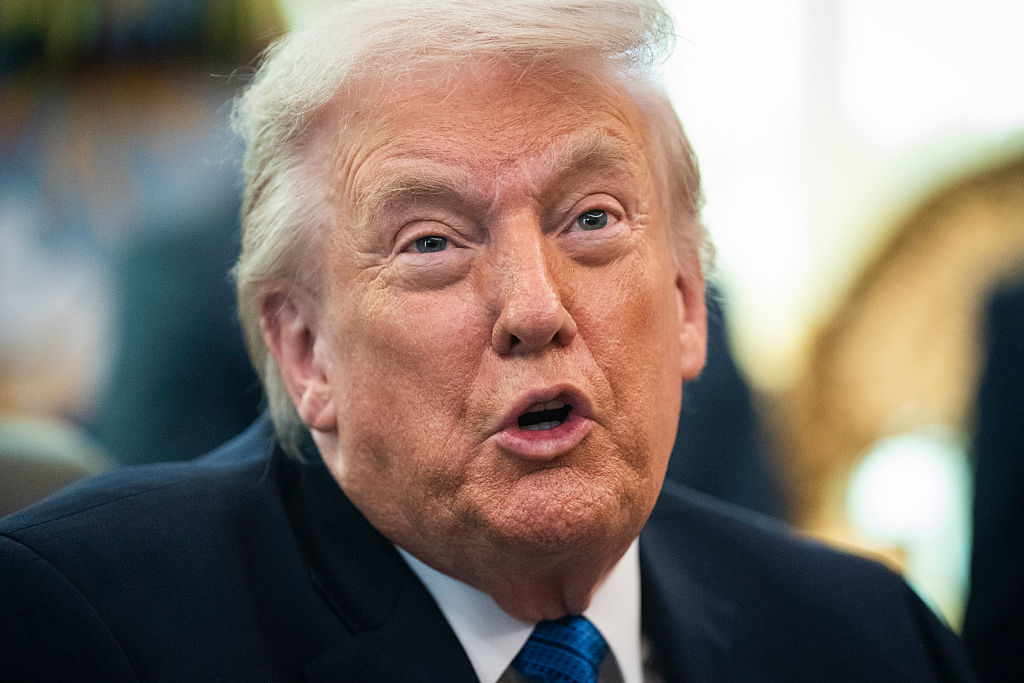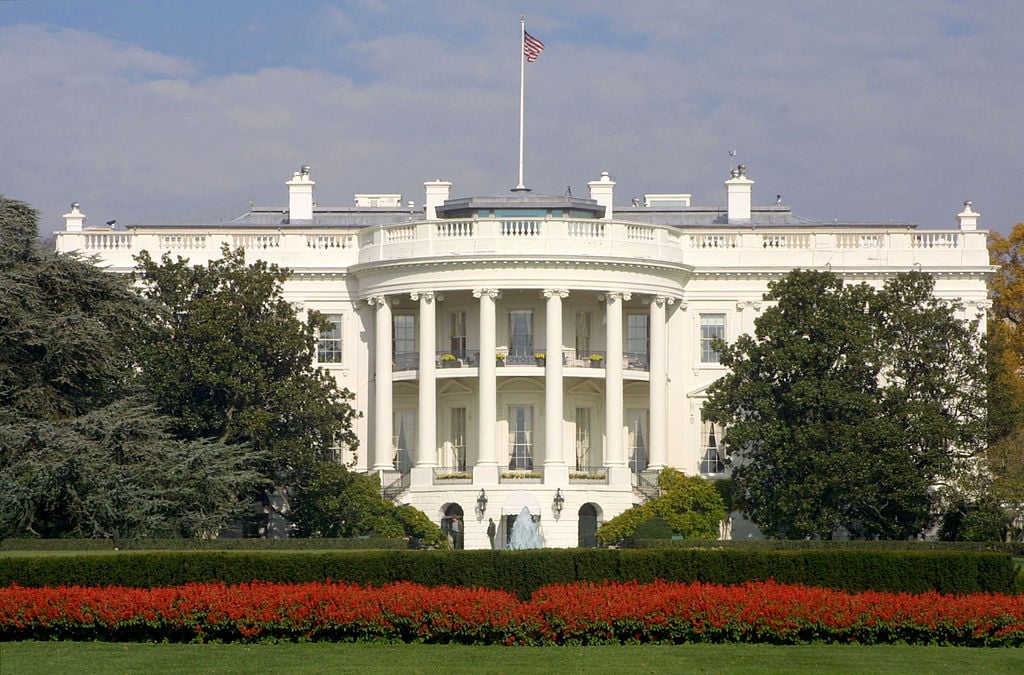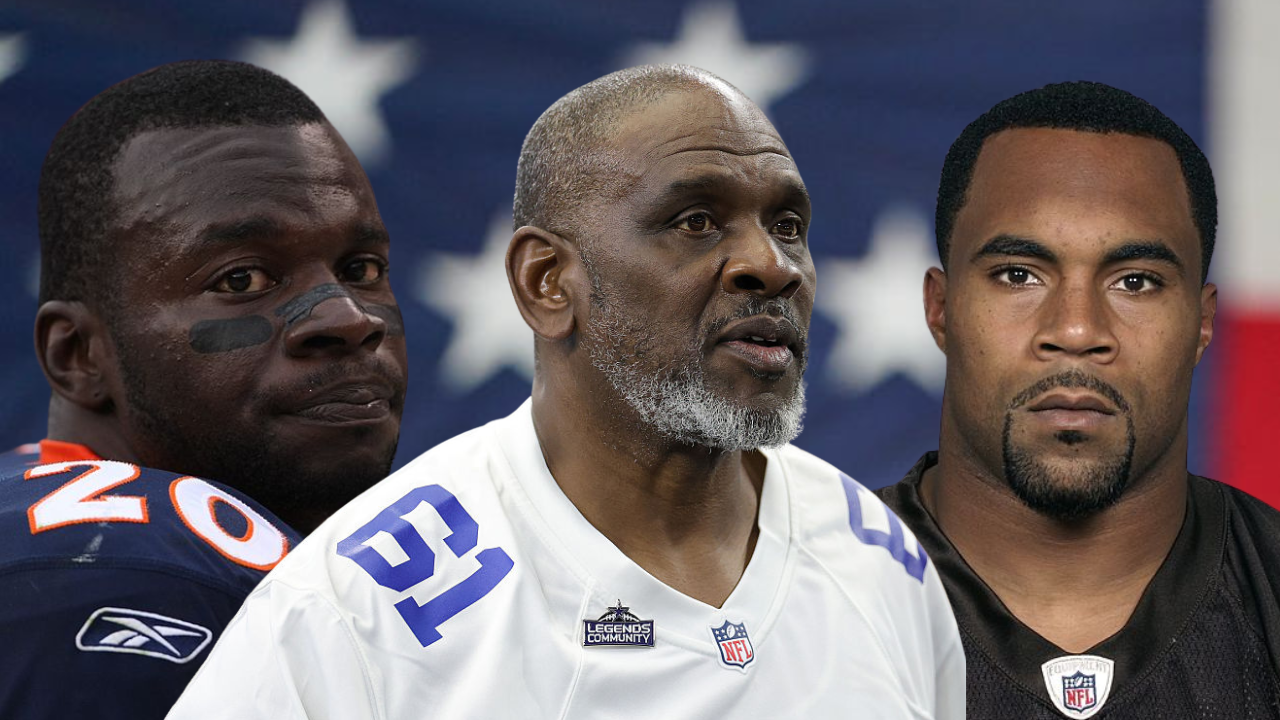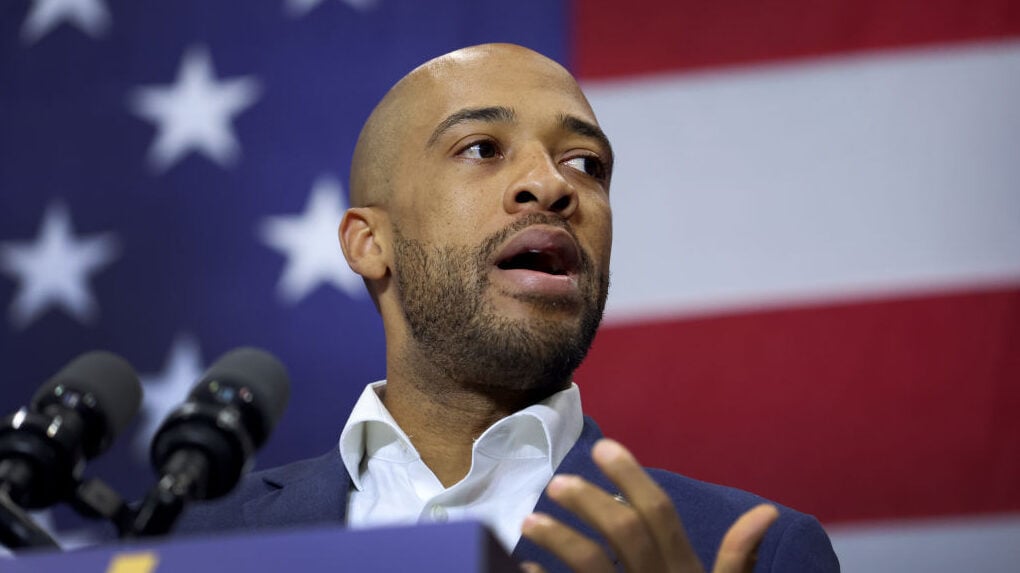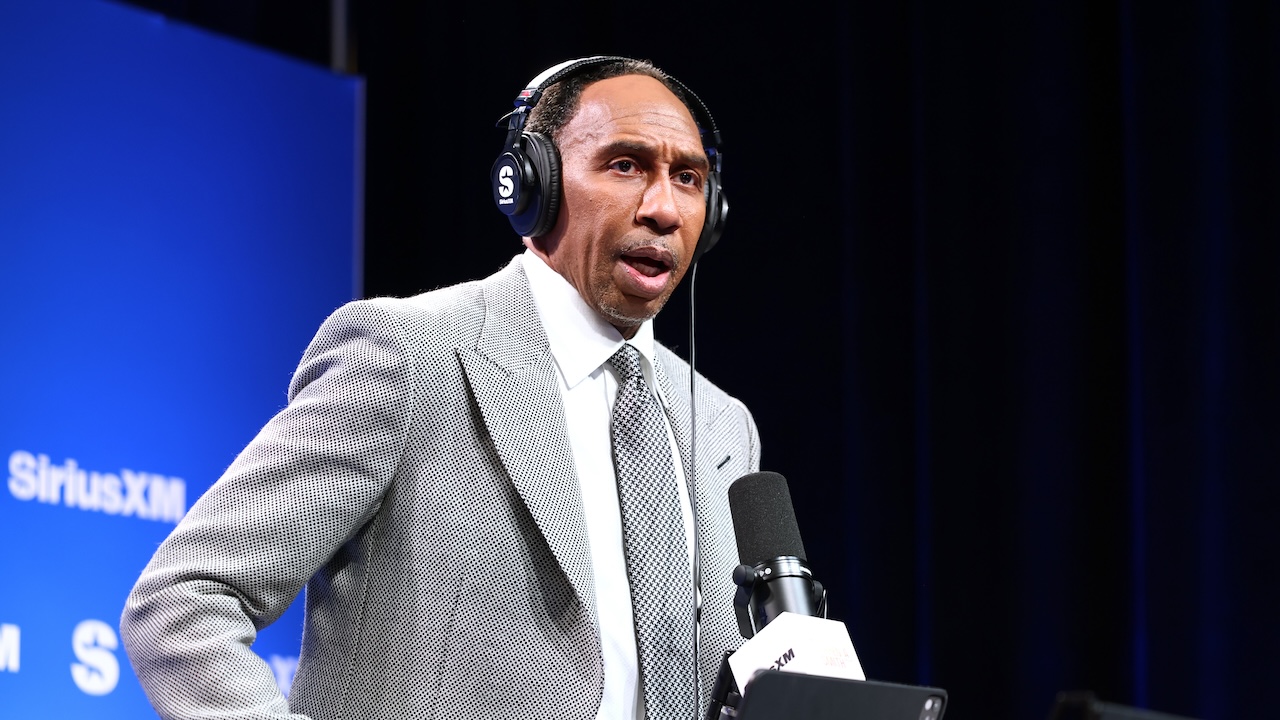Steelers OT Calvin Anderson nearly died from malaria — he’s now advocating to save others

WASHINGTON — As Calvin Anderson walked the long, narrow hallways of the Longworth House Office Building, it didn’t take much for him to stand out.
The Pittsburgh Steelers’ backup offensive tackle is 6-foot-5 and more than 300 pounds, towering over U.S. House representatives of Congress and staffers roaming the expansive building. Not to mention, Anderson is dressed in an all-white ensemble, which clashes with the majority of the blue or gray suits typically worn by those who work on Capitol Hill.
What brings Anderson to Washington just a week before NFL training camps kick off is a cause that is near and dear to his heart: funding for malaria treatment. It’s a cause that, two years ago, nearly killed him.
Ahead of the 2023 NFL season, Anderson contracted malaria while visiting Nigeria, the ancestral home of his wife, Sherée Lanihun-Anderson. After a near-fatal bout with the disease, which threatened his football career, Anderson became an advocate for United to Beat Malaria, a grassroots organization that advocates for global malaria program funding.
In partnership with United to Beat Malaria, the sixth-year pro is using his stature as an athlete to advocate for malaria funding in the face of deep cuts to foreign aid — including nearly 50% cuts to malaria programs — by President Donald Trump’s administration.
This is a cause Anderson believes he was chosen for.

United to Beat Malaria
“Football is not intrinsically important unless I use it as a tool to have a positive impact on somebody else,” said Anderson, 29. “Whether it’s somebody in the locker room or a coach or somebody who watches me on TV or what rooms I get to be in as a result of being a football player. I think that’s how I now see football’s role in my life.”
Anderson, an undrafted tackle out of Rice and Texas, was a rookie in 2020 when he met Sherée Lanihun, a Nigerian-Dutch woman living in Amsterdam, on a dating app. Lanihun was beautiful and intelligent (she holds a master’s degree from the University of Cambridge in England), and immediately Anderson knew he wanted to marry her.
“God was reaching down and turning my head 180 degrees and he was telling me this person is supposed to be an integral part of your life and future,” Anderson said.
Due to the Covid-19 lockdowns at the time, Anderson couldn’t travel to Amsterdam to visit Lanihun, so the pair started meeting for dates around the world, including St. Lucia, Mexico, Paris, and Dubai. In 2021, the couple traveled to Lagos, Nigeria, where Anderson met Lanihun’s father for the first time.
After two years of dating, Lanihun moved to America in 2022. Shortly afterward, the two married in the Garden of the Gods park in Colorado Springs, Colo.
The couple returned to Nigeria in July 2023, not only to visit Lanihun-Anderson’s father again but also to start mapping out their post-NFL lives in the country, where they’ve since bought a house. That same year, they founded JB5 Investments, an American real estate and private equity firm, which they later expanded into Nigeria, building row homes for the country’s growing middle class.
They also run the Lanihun-Anderson Foundation, a nonprofit organization focused on anti-poverty and financial literacy, based in the United States. In Nigeria, the couple’s philanthropic work includes providing food and water to those without access, purchasing anti-malarial medications, and paying rent for those experiencing housing insecurity.
After returning home from that trip in 2023, though, Anderson’s life changed forever.
The morning after flying in from Nigeria, Anderson woke up at 6 a.m. with a headache and a fever of 104.5 degrees. He could barely get out of bed and walk. Once they arrived at Newton-Wellesley Hospital, Anderson was immediately placed in a wheelchair and taken to a room. Doctors couldn’t immediately diagnose the problem, but blood tests later found that it was malaria. Anderson suffered kidney failure, an enlarged spleen and his urine turned black. Doctors gave him a 50/50 chance of survival.
“Is this real right now?” Anderson remembers thinking.
Anderson was given anti-malaria treatment and was released from the hospital after four and a half days. While he started feeling back to normal about a week after being admitted, Anderson couldn’t just jump right back into football. There had been no NFL player in history who had ever had malaria before. There was no return-to-play protocol in place, unlike for Covid-19. He’d lost more than 30 pounds, and due to an enlarged spleen, he couldn’t work out. The Patriots placed him on the non-football illness list on July 25.
“That was the worst part because, in football, you’re used to having injuries that you can sort of work back from and do physical therapy for. But recovering from malaria, there’s no physical therapy.”
Malaria caused Anderson to miss all but five games of the 2023 season. In May 2024, The Boston Globe ran a 3,000-word story on Anderson’s malaria diagnosis and recovery. Staff at United to Beat Malaria, which has raised more than $79 million for malaria prevention since 2006, read the piece and reached out to offer Anderson an ambassadorship role with the organization to help bring awareness to the disease’s impact on the African continent, which accounts for more than 90% of global malaria cases, according to the World Health Organization (WHO). Nigeria accounts for nearly 30% of global cases, the most of any country.
The spokesperson agreement included a first-person op-ed written by Anderson in USA Today documenting his case and advocating for continued foreign aid for malaria treatment.
“My story makes a lot of sense because I’m not just an athlete that’s just championing a cause,” Anderson told Andscape. “I actually had malaria and we are present in Nigeria where most of the malaria cases are.”
Anderson and United to Beat Malaria’s advocacy work ramped up in 2025 due to actions by the Trump administration. On the first day of his second term, Trump issued an executive order calling for a 90-day freeze on foreign aid, which included the main funding arm for global malaria treatment, the President’s Malaria Initiative (PMI).
Since the PMI was implemented in 2005, countries that have received the initiative’s funding have seen a nearly 30% decline in malaria cases and an almost 50% drop in malaria-related deaths. United to Beat Malaria estimates that more than 12 million lives have been saved due to funding from the PMI.
While malaria programs received a limited waiver from the foreign aid freeze in February, the Kaiser Family Foundation found that 80% of malaria-focused funding was terminated this fiscal year. For next year, the Trump administration is recommending a $381 million decrease (down from over $800 million in 2025) in malaria funding, which could lead to a surge in malaria cases and deaths, according to an internal United States Agency for International Development memo. United to Beat Malaria aims to restore malaria funding to 2025 levels, as well as financing to Gavi, which supports the development of malaria vaccines.
Malaria prevention and treatment methods include preventative medicines, insecticide-treated mosquito nets and anti-malarial treatments. Anderson took Malarone, an antimalarial drug, before traveling to Nigeria in 2023.
The Republican justification for the foreign aid cuts centers on government waste, suspected fraud, and preventing funding that, according to the executive order, is “not aligned with American interests and in many cases antithetical to American values,” such as programs related to transgender issues or diversity, equity, and inclusion initiatives.
United to Beat Malaria
Whether speaking to Democratic or Republican lawmakers, Anderson speaks calmly and eloquently, humanizing the impact of malaria while emphasizing the need for continued funding at current levels. Through all the congressional representatives he meets with over the two days I shadow him on the Hill, Anderson, accompanied by Lanihun-Anderson, sticks to his script of emphasizing his near-death battle with malaria, how anti-malarial drugs saved him, how he believes his ordeal was all a part of God’s plan to lead him to this advocacy work, and how foreign aid investment prevents deadly diseases from reaching America.
“Diseases don’t care about borders,” Anderson mentioned in multiple meetings with lawmakers.
He relates to the legislators through sports, particularly Republican members of Congress. Anderson mentioned his former Patriots head coach, Bill Belichick, in the office of North Carolina Rep. Greg Murphy, who has a signed football from Belichick in his office. Belichick is now in his first year as head coach at the University of North Carolina. When meeting with Georgia Rep. Buddy Carter, Anderson brought up when his Texas Longhorns beat Carter’s Georgia Bulldogs in the 2019 Sugar Bowl.
The Republican congressional members were mostly receptive to Anderson until it came down to the actual funding of foreign aid.
Rep. Murphy, a licensed urologist who has conducted medical missionary work in India, Kenya, Eswatini (formerly Swaziland), and Haiti, stated that foreign aid funding needs to be decreased due to misappropriated accounting and spending by USAID, which was dissolved into the State Department on July 1.
When asked if he’s found any misappropriation of funds when it comes to malaria aid, Rep. Murphy responded, “No, not to my knowledge. Not for malaria.”
Rep. Carter, a licensed pharmacist, echoed Rep. Murphy’s concern about “waste, fraud, and abuse.” While Rep. Carter didn’t mention specifics, he said, “You can identify it in a lot of these programs because they are so, as I’ve said before, you have such a bloated bureaucracy that you’re naturally going to have that.
“But look, there are a lot of fine quality programs out there that need to be continued and we’re going to make sure are continued.”
Despite playing one of the most physically violent sports in America, battling malaria was the first time Anderson truly considered his mortality. He has always seen himself as a protector: Anderson is the oldest of two sisters and plays on the offensive line, where his primary responsibility is to protect the quarterback. Malaria stripped him of that protector role.
“It’s like if you’re Superman, you feel like your superpowers are taken away,” Anderson said.
His battle with malaria forced Anderson to look in the mirror and question what was most important to him in life, and what his purpose was. It’s no doubt football, but it doesn’t have to be just that. Football can be a vessel for so many other things: his business, his foundation, his family, and now his work to eradicate malaria on the African continent.
“I think any individual thing I have going on is not really important,” Anderson said. “It’s the collection of all of them and unification of all of them together to then have some sort of impact.”
Visiting the U.S. Capitol was an opportunity for Anderson to use his platform as an NFL player to advocate for something he believes in. His experience with malaria puts a face on not only the deadly effects of the disease but also the deadly impact cutting foreign aid can have on countries like Nigeria, where he plans to move to when his NFL career ends. Anderson said he believes there’s a reason he contracted malaria, and it would go against God’s will if he didn’t use that experience to help others.
“I almost felt like God was like, ‘Are you going to step up or not? I gave you the perfect opportunity.’ So I’m trying to run it at full speed.”
What's Your Reaction?
 Like
0
Like
0
 Dislike
0
Dislike
0
 Love
0
Love
0
 Funny
0
Funny
0
 Angry
0
Angry
0
 Sad
0
Sad
0
 Wow
0
Wow
0




